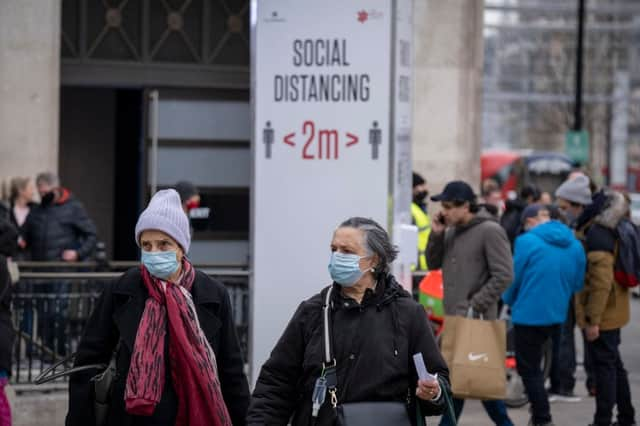Experts say to look out for these Covid symptoms that aren’t on the official NHS list


The UK has begun to tighten its Covid-19 restrictions amid a surge in cases. As news travels of new strains of the virus, experts have warned that there are more symptoms that you should be aware of.
While the NHS only has three ‘official’ symptoms of Covid-19, there are a number of other symptoms that could also indicate that you might have the virus.
What symptoms should I look out for?
Advertisement
Hide AdAdvertisement
Hide AdThe NHS states that these are the “main symptoms” you should be aware of:
- A high temperature, which means you feel hot to touch on your chest or back
- A new, continuous cough, which means coughing a lot for more than an hour, or three or more coughing episodes in 24 hours (if you usually have a cough, it may be worse than usual)
- A loss or change to your sense of taste or smell, which means that you may have noticed that you cannot smell or taste anything, or things smell or taste differently to normal
However, these aren’t the only symptoms that can arise in Covid-19 patients.
Tim Spector, lead scientist on the ZOE COVID Symptom Study app, and Professor of Genetic Epidemiology at King’s College London, said, “People need to know all the symptoms and not just focus on the three ‘official’ symptoms that miss over 20 per cent of cases.
“Headache, fatigue, diarrhoea, muscle pain, skipping meals and confusion are just some of the other symptoms associated with Covid-19.
Advertisement
Hide AdAdvertisement
Hide Ad“If anyone is suffering from any of these over the coming weeks, stay at home, self isolate and get a test.”
‘Cases in the UK rapidly rising’
According to the ZOE COVID Symptom Study UK Infection Survey, daily new cases of Covid-19 in the UK are now “surging.”
There are currently 38,710 daily new symptomatic cases of Covid-19 in the UK on average over the past two weeks, up to 18 December, excluding care homes.
Spector said, “Cases in the UK are still rising rapidly with an R value of 1.3 doubling roughly every week.
Advertisement
Hide AdAdvertisement
Hide Ad“This new virus strain is being blamed for the recent surge in London and the South East, but while it is definitely becoming the dominant strain in new infections, there’s still no hard evidence yet to support that it is acting differently.
“It’s possible that these rapid changes would have happened anyway, just as they have done in Wales which has four times the national rate.
“Whichever strain is causing the recent increases, we are still a mess and need to limit the number of cases, especially in the elderly to help the NHS.”
The study figures are based on around one million weekly reporters and the proportion of newly symptomatic users who have positive swab tests.